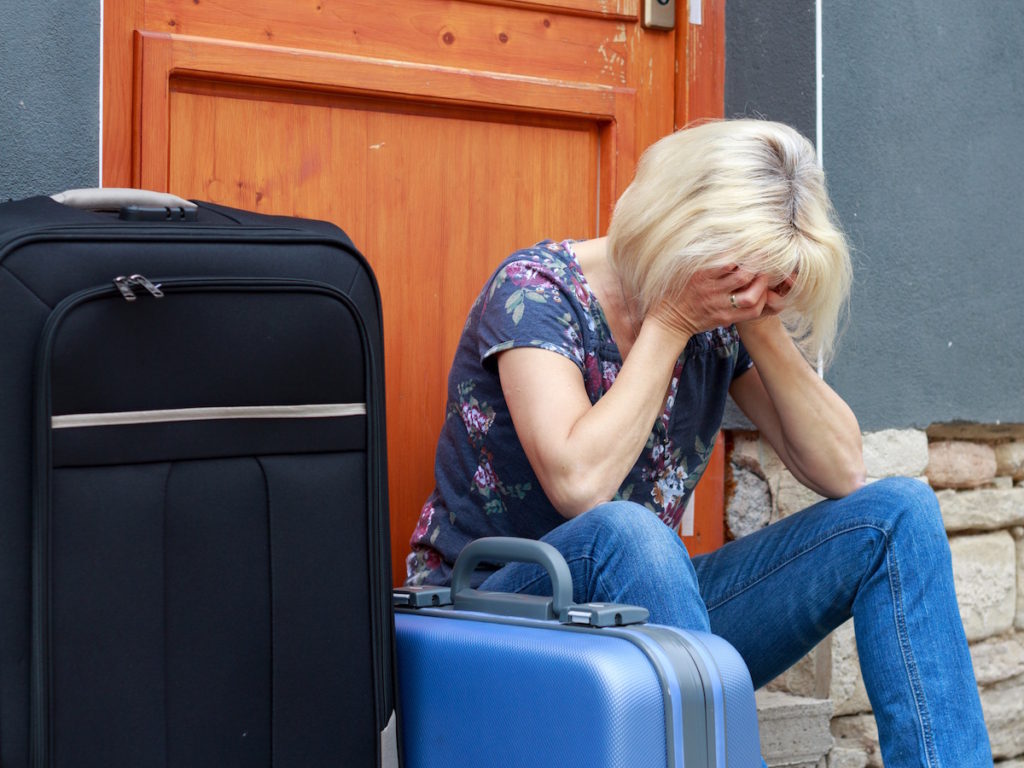Lorelie Rozzano is a guest blogger for Vertava Health.
Should I Leave My Addicted Loved One?
The other day I received a question from Jean (not her real name). Jean’s husband was using crystal meth and alcohol. Jean stated when he was clean and sober, he was a really great guy. Then she added, but when he is drinking and using crystal meth, he’s a monster. Jean’s husband is suffering from what is known as the Jekyll and Hyde personality trait. Quiet and subdued when sober, enraged and mean when high. Jean said her husband had tried meetings but he didn’t believe in God. He refused to go back claiming the meetings were really just a cult and the people there were being brain-washed. As Jean continued, I couldn’t help reflecting on my own experience In the Rooms. I too, had felt the same way Jean’s husband did. When I walked into my first meeting an elderly gentleman named Pete greeted me at the door. He shook my hand rather enthusiastically and said “Welcome.” Then he proceeded to tell me, “Don’t pick up, go to meetings every day and thank God you’re alive. He looked at me rather solemnly and added, “Then repeat.” My first meeting ended in The Lord’s prayer. As I existed the smoky church basement, I was convinced AA wasn’t for me. It was a religious cult that talked about God. I didn’t believe in God, therefore meetings weren’t for me. Years passed and my addiction progressed. The next time I entered the rooms I was a little more humbled, but I still felt like I was being brainwashed. I was cynical, miserable and looking for a fight. I mistrusted the people I met there. I couldn’t figure out their angle. They didn’t seem to want anything from me, which was weird. Lucky for me, instead of writing them off, I shared my concern. I stood up at that meeting on shaking legs and announced to the room of happy shiny people, I thought we were being brain-washed. I don’t know what I expected them to do. Maybe boo or hiss at me, but that’s not what happened. Instead, they laughed. I mean really laughed. The kind of laughter that comes from deep down inside your belly. Their laughter was infectious and soon I was laughing too – although I didn’t know at what. When the laughter stopped and I stood looking around the room feeling bewildered, a woman spoke up. She summed it up nicely. She said, “Honey, did you ever think your brain might need a little washing? It’s pretty dark in there.” You know what? She was right! My brain did need a little washing. It needed a whole lot, to be truthful. The way it had been operating up to that point, was suicidal. It turned out the God I was rebelling against wasn’t the one up on the cross that you see in church. At least, that’s not who he was to me. I was instructed to define God as I understood him. Being an atheist, that was no easy task. But I came up with something that worked for me. Unconditional Love became my new God. I shared my experience with Jean. Jean is by no means unique. If I had a dime for every time I’ve heard 12-step meetings ridiculed or bad mouthed because of the word God, I’d be a rich woman. But I get it. Addiction is cunning. If it wasn’t the word God it would be something else. I didn’t know it then, but my addiction was looking for things that wouldn’t work. My illness didn’t want me in meetings or in rehab. It wanted me dead! As Jean and I spoke, I advised her she may want to go to meetings herself. Jean thought I meant Narcotics Anonymous meetings, but those aren’t the meetings for her. What Jean needed was meetings to help her identify her codependent behaviors. She needed a place where she could talk about her emotions and learn what role she played in the family disease. If Jean were to attend these meetings she would find support and learn how to set boundaries. When we have healthy boundaries other people can’t manipulate or take advantage, of us. When I was active in my addiction my husband was my biggest enabler. It wasn’t until he left me, that I was forced to take responsibility. Which leads me back to Jean’s question. Yes Jean, there are times when you should definitely walk away from your addicted loved one. If you’re being physically used, you should leave. No one should ever make excuses for, or put up with, physical use. But physical use isn’t the only kind of use. There is also emotional and psychological use. Use is a game-changer. When you tolerate abusive behavior, you become just as sick as your addicted loved one. Keep in mind addiction isn’t about how much you drink or use. It’s about how you think and the consequences of your actions. Whether you’re suffering from substance use or enabling someone who is, both are equally detrimental to your health. Try something new. Attend a meeting or a family program. The people there will tell you; if you’re asking the question… you already know the answer. If you or someone you know needs help, please call this confidential support line for assistance. 844-470-0410.


